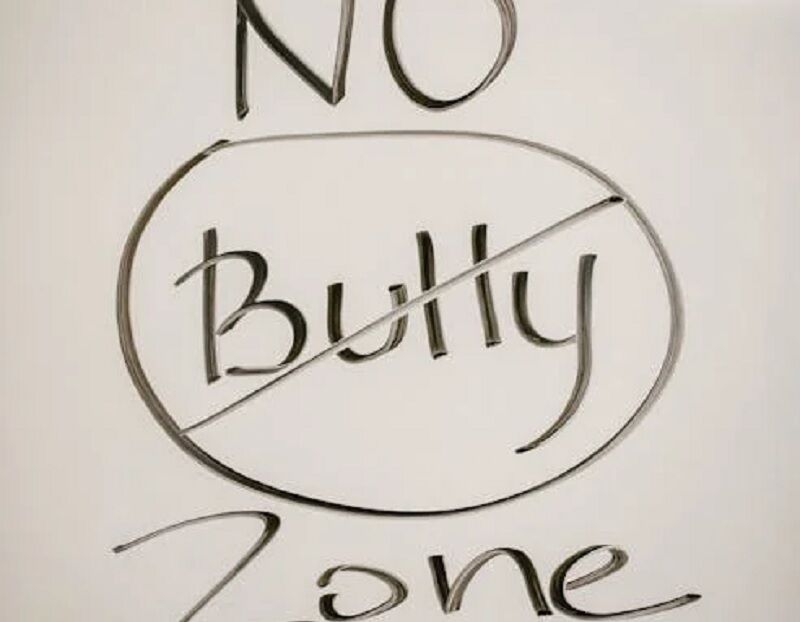How to help your child deal with bullying in schools

Navigating childhood and adolescence can be tough, especially with the threat of bullying. As guardians, we must equip our children with effective strategies to handle these situations. This article provides tactics to help your child combat bullying in school.
Ranging from appreciating the need for transparent communication to identifying the requirement of professional assistance, we will traverse diverse measures you can take. Additionally, we will tackle how to manage scenarios where your child may be hesitant to disclose bullying incidents and methods to efficiently cooperate with school authorities.
Bear in mind, that it’s not solely about confronting the current situation but also cultivating skills in your child to combat any future negative societal behaviour. Hence, let’s embark on a journey through a realm of strategic decisions, self-assured actions, and productive interference.
What is bullying?
Bullying, an issue impacting children globally, is an aggressive, intentional act carried out by an individual or group repeatedly, against another who cannot easily defend themselves. It encompasses a broad spectrum of aggressive actions, from physical altercations like hitting or punching, to verbal assaults such as name-calling, teasing, or social banishment. Often, the individual involved in bullying may exhibit copied behaviour, lack knowledge about treating others respectfully, or attempt to offset their problems by making others feel inferior.
Signs your child might be bullied
Identifying bullying early goes a long way in managing its side effects. Notably, children are often hesitant to report that they’re being bullied, hence, vigilance on your part is critical. Physical signs such as unexplained bruises or scratches, loss of appetite, headaches, and stomachaches might indicate that your child is being bullied. Mental and emotional signs encompass decreased self-esteem, feelings of depression, loneliness, anxiety, or fear of attending school. Remember, it takes bravery for a child to admit they’re experiencing bullying. Ensure your home is a safe space for open communication about this critical issue, allowing your intervention and assistance in the process at the earliest.
Effective communication strategies
Fostering open communication and discerning your child’s feelings in the context of school bullying. Let’s delve into the practical applications of these crucial elements.
Encourage open conversations
Creating a cosy little nook where your kiddo feels safe to spill about their school day, including those not-so-nice run-ins with bullying, is really important. Like starting a casual chit-chat, you lend them your ear without being too nosey or pushy about the specifics. After all, we’re here to help them verbally paint their experiences and feelings, right? And surely we give a thought to their age and personality while choosing a heart-to-heart style. Maybe a straight-up Q&A works for them, or maybe they prefer something a bit more roundabout, like storytelling or pretending to be superheroes.
Discerning your child’s feelings
A crucial skill in dealing with bullying is the ability to discern your child’s feelings effectively. Children often struggle to express themselves accurately, especially in situations that make them feel vulnerable or distressed. As a parent, gauging your child’s emotions goes beyond their spoken words. Pay heed to nonverbal cues, including changes in behaviour, reluctance to attend school, nervousness, or unexplained injuries.
With bullying, your child might display signs of fear, anxiety, or depression. Note alterations in sleep patterns, appetite, or social interactions. Be alert to the emergence of evasive behaviours, such as avoiding school or particular routes to their educational institution. Also, monitor any sudden drop in academic performance, as it could signal distress at school. Rather than dismissing these indicators as typical ‘childlike behaviours,’ heed these changes as potential signs of bullying, deserving of your attention and action.
Building resilience and confidence

In the journey of nurturing children, the bolstering of resilience and confidence aids significantly in surmounting the challenges of bullying.
Promoting positive social skills
In the battle against bullying, the cultivation of positive social skills serves as an essential tool. Positive social skills encompass basic human interaction such as listening, expressing oneself clearly, respecting others, and conflict resolution. Instil subtlety in children so they can identify with these skills. Additionally, you can expose them to diverse environments in which they can practice these skills, such as social events, extracurricular activities, and playdates. They foster an atmosphere of respect, understanding, and empathy – the antithesis of bullying.
Role-playing different scenarios
Role-playing equips children with the tools to navigate various situations they might encounter, including instances of bullying. In acting out scenarios rooted in reality, children gain not only awareness of bullying but also learn reasonable responses to such intimidating situations. This approach emphasises that standing up to bullying isn’t about retaliation, but about asserting one’s rights without infringing upon others. It is vital to let children know that when antagonism fails to cease, apprising adults is a critical and commendable step.
Practical steps to address bullying
In the torment of enduring bullying, it’s vital to take actionable steps. This section delves into practical strategies you can adopt to help your child navigate these troubled waters confidently.
Engaging with school authorities
Your first point of action involves contacting educational professionals connected with your child. Talk to teachers, guidance counsellors, or the school principal about the bullying. Reveal everything you know about the situation. It’s crucial to establish a cordial relationship with school officials, as they can provide invaluable support and vigilance during school hours. Rest assured that discussions regarding your child are taken seriously, ensuring their safety and well-being.
Documenting incidents of bullying
Maintaining a record of bullying incidents can’t be overstated. Document all relevant information, such as what, where, when, and how the bullying occurred. Get this information from your child, school staff, or other students. Keep any possible evidence like text messages, emails, or social media posts. Print out these pages and save screenshots. This compiled evidence provides solid grounds for your complaint, whether you take it up with the school board, law enforcement, or the US Department of Education Office of Civil Rights.
Empowering your child to speak out
Empowerment is the cornerstone of resilience. Teach your child that it’s alright to stand up against bullying. Encourage open communication about their day at school, emphasising that concealment isn’t necessary, and they have nothing to be ashamed of. Let them know that it’s okay to retaliate verbally if they’re physically or verbally abused, but teach them the difference between retaliation and initiation. Emphasise that you’re in their corner, regardless of the situation.
Legal and psychological support

Providing your child with legal and psychological support is a crucial part of combating bullying. Empowering them with knowledge, alongside professional guidance, can make a world of difference in tackling such issues.
Knowing your rights and responses
In regards to bullying, your child has certain protected rights. The Equality Act 2010, a legislational framework in the UK, warrants that schools ensure students with protected characteristics, such as disability, do not face discrimination. Understand these rights, as knowledge is the first line of defence in tackling any form of abuse.
The Human Rights Act might also be referred to when lodging a complaint against the school. Consult the Human Rights Act with Citizens Advice to comprehend the rights protected under the act.
If the bullying continues unabated, it becomes necessary to take serious measures. File charges with the school board and, if required, with local law enforcement. The seriousness of the situation determines the response. It’s advisable, though, to exhaust all possibilities with the school and school district before escalating matters.
Seeking professional advice
In bullying cases, professional advice is often indispensable. Consulting experts can offer insights grounded in extensive experience and specialist knowledge. Private telephone consultations with teen experts can be beneficial in understanding the nuances of your child’s psychological state. They may conduct sessions to help your child deal with their emotions effectively and overcome the effects of bullying.
Remember, it’s not only about reacting to bullying incidents but also equipping your child with the necessary tools to respond to them. Arm them with these resources, an understanding of their rights, and professional support to create an impervious defence against bullying.
As long as your children know what to do when they encounter a situation with bullying, they are set to continue growing in a school setting. You can also check out the pros and cons of studying in Thailand, due to globalisation and universities offering good opportunities for international students, students have taken a liking to studying abroad, as it made them become more independent, and get unique experiences that students cannot get at their local universities.
Latest Thailand News
Follow The Thaiger on Google News:


























